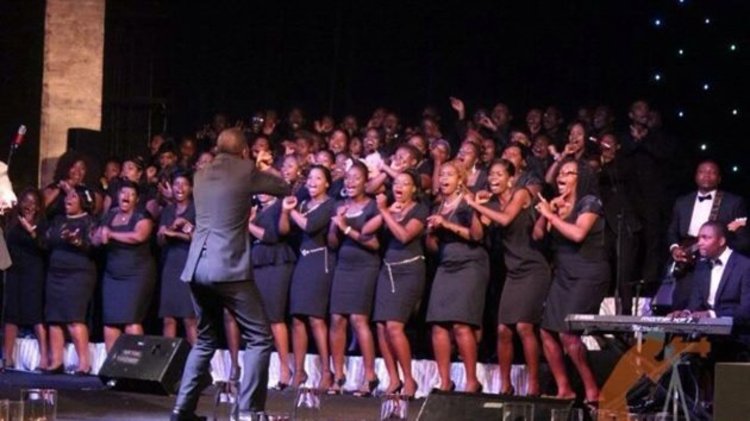Mixed fortunes at Mutare Book Fair
Stanley Mushava recently in Mutare
The Zimbabwe International Book Fair stretched its wings to Mutare last week for the second year after the unfortunate gap when regional book fairs had to be halted six years ago. The fair, taglined “ZIBF@30: Enabling Creativity, Writing, Publishing and Reading for Africa’s Growth” consisted of a sold-out writers’ workshop, which drew 90 participants, and a literary evening where new discoveries from Mutare showcased their prowess.
Publishers and distributors, however, lamented poor attendance at the exhibitions which they blamed on lack of publicity and the choice of an obscure venue outside the central business district.
The Mutare Book Fair follows hard upon the main book fair held in Harare from September 30 to October 6 and provincial book fairs in Bulawayo and Masvingo in March and May respectively, with only Midlands missing in action.
The workshop probed varied problems across the local literary terrain including digital migration, internet marketing tools for authors, publishers and booksellers, censorship, book piracy, copyright infringement and challenges faced by libraries.
Budding writers, notably Clever Kavenga, Nomfundo Manzini, Angeline Marange and Solomon Mavapangidza lit up the Literary Evening at Memorial Turner Library.
Prose and poetry readings by the authors from their own works attested that not only mineral deposits but wealth of creative genius inhere beyond the Manica mountains.
ZIBF chairperson Musaemura Zimunya said the expansion of the book fair beyond its traditional confines in Harare was long overdue.
“It is clear that over the years, ZIBF has concentrated on the main book fair in Harare which has only benefited the bambazonke population in Harare rather than the rest of Zimbabwe. Accordingly, it became necessary for us to expand the book fair beyond the capital and we started with started with the Bulawayo and Mutare fairs which had been obsolete for five years and extended to Masvingo in order to spread the visibility of books as central tools in educational, professional, cultural and national development,” he said.
“There are many people outside Harare who lacked the opportunity of interfacing as stakeholders in the book sector yet we are one nation and we cannot afford to encourage unequal development. The launch of the Masvingo Book Fair and the resuscitation of the Mutare Book Fair are all part of a deliberate effort to expand further even as we grow our relevance as an institution mandated with complementing government efforts to promote education based on the vision of universal literacy,” said Zimunya.
Zimunya said the book fair wishes to extend to the furthermost peripheries where there is a lot of talent but no avenues for exposure but said that resource constraints were a major impediment.
“We do not have the resources to reach all the places we would like to reach. However, we hope that as we continue to operate in the areas we have targeted so far, those areas will become centres where the love of books will spread to marginal parts,” he said.
Zimbabwe Women Writers Union marketing co-ordinator Keresia Chateuka said: “Our problem is that publicity and media coverage was poor for an event of such national significance and Queens Hall lacked strategic proximity to the target population.
“We are only seeing the same people we saw last year minus those who did not come. Most exhibitors are suggesting moving to a more strategic a spot in the CBD where more people frequent,” Chateuka said.
Christian and Muslim publishers and distributors exhibiting evangelically-themed titles said ZIBF was a strategic arena for witnessing their faith and said they hoped that the next book fair extends to at least four days.
ZPH marketing co-ordinator James Ginio said: “Relatively few schools participated this year and we are also looking at corporate and the members of the public as participants we missed. My query is did we have a single poster in Dangamvura?
“Possibly the postponement of the main book fair from July to October on short notice scuttled the normal two-month preparation window for the Mutare book which is within the same month.
“Next time, we suggest that ZIBF prepare marketing brochures for distribution countrywide through publishers who are in constant interaction with schools,” Ginio said.
“Giving rural schools special slots to perform and organising reading competitions may also be imperative in a bid to sensitise people in the rural area,” he said.
At its height, ZIBF was one of the major events on Africa’s literary calendar, attracting such notables as Chinua Achebe, Micere Mugo, Ama Ata Aidoo, Ngungi WaThiong’o and Cyprian Ekwensi.
It was incepted in 1983, with the blessing of then Prime Minister Robert Mugabe, to promote Zimbabwe’s reading culture, network stakeholders in the literary fraternity and enhance the visibility of the local book sector.







Comments